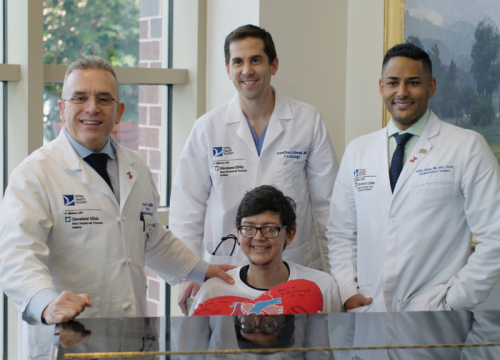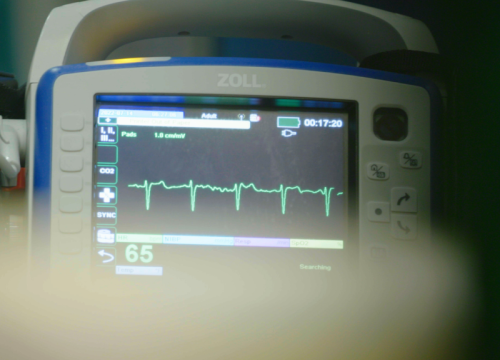The Valley Hospital is now open at 4 Valley Health Plaza in Paramus. (You may need to use 650 Winters Avenue for GPS.) All emergency care is now being provided at this location. Emergency care is no longer available at our Ridgewood campus.
Irregular sleep can lead to cardiovascular disease

It is well known that adequate, quality sleep is vital to health and optimal functioning.
A recent study in the Journal of the American Heart Association found that irregular sleeping patterns could increase your risk for developing cardiovascular disease.
The study found that sleep irregularity, in both timing and duration, was associated with several measures of early atherosclerosis, which is the buildup of plaque in the inner lining of artery walls.
The study monitored the timing and duration of sleep for over 2,000 older adults, age 45 to 84 (average age 69) for a three-year period. The study included people of all races.
Participants maintained a sleep diary and wore a special wristwatch that tracked sleep timing and quality. They also underwent assessments of coronary artery calcium deposits, a measure of atherosclerosis; measurement of carotid plaque; and ankle-brachial index, a measure of peripheral vascular disease.
The study showed that those who had varying bed and wake times or greater variations in sleep duration were more likely to have early signs of atherosclerosis. This was noted in both the scores of coronary calcium deposits and the ankle-brachial index, indicating greater degrees of early coronary disease and peripheral vascular disease. When the sleep pattern varied from day to day by two hours or more, there was an increase in coronary disease. Subjects with irregular sleep timing, varying over 90 minutes in a week, increased the chances of more coronary calcium by 1.4 times. Patients with irregular sleep duration had a greater chance of carotid artery accumulation.
The results remained the same after adjusting for body mass index (BMI), prior cardiac disease, sleep apnea, or other sleep disorders.
We have known for a long time that the quantity and quality of sleep are very important to optimal daytime functioning and good health. Adults need seven to nine hours of sleep. This study provides evidence that the timing of sleep is also very important and that maintaining regular sleep patterns may reduce the risk for atherosclerosis and heart disease.
Previous studies have shown that shift workers have increased risk of heart attacks, diabetes, metabolic syndrome, ulcers, high blood pressure, and breast cancer. Also, the time change in spring from standard time to daylight savings time is associated with increased heart attacks, strokes, and motor vehicle accidents. Daylight savings time itself, compared with standard time, seems to be associated with increased risk of obesity and heart attacks due to misalignment of sunlight exposure with our biologic clocks.
These studies highlight the importance of obtaining adequate sleep regularly and on a stable schedule.
Valley’s Approach to Sleep Medicine
The Center for Sleep Medicine at The Valley Hospital provides advanced diagnosis and treatment for a variety of sleep disorders and ailments, in patients of any age. It is accredited by the American Academy of Sleep Medicine – a voluntary accreditation that demonstrated Valley’s commitment to high-quality, patient-centered care.
The Center also offers a wide range of in-center and at-home sleep services.
Click here for more information about sleep at Valley.

















